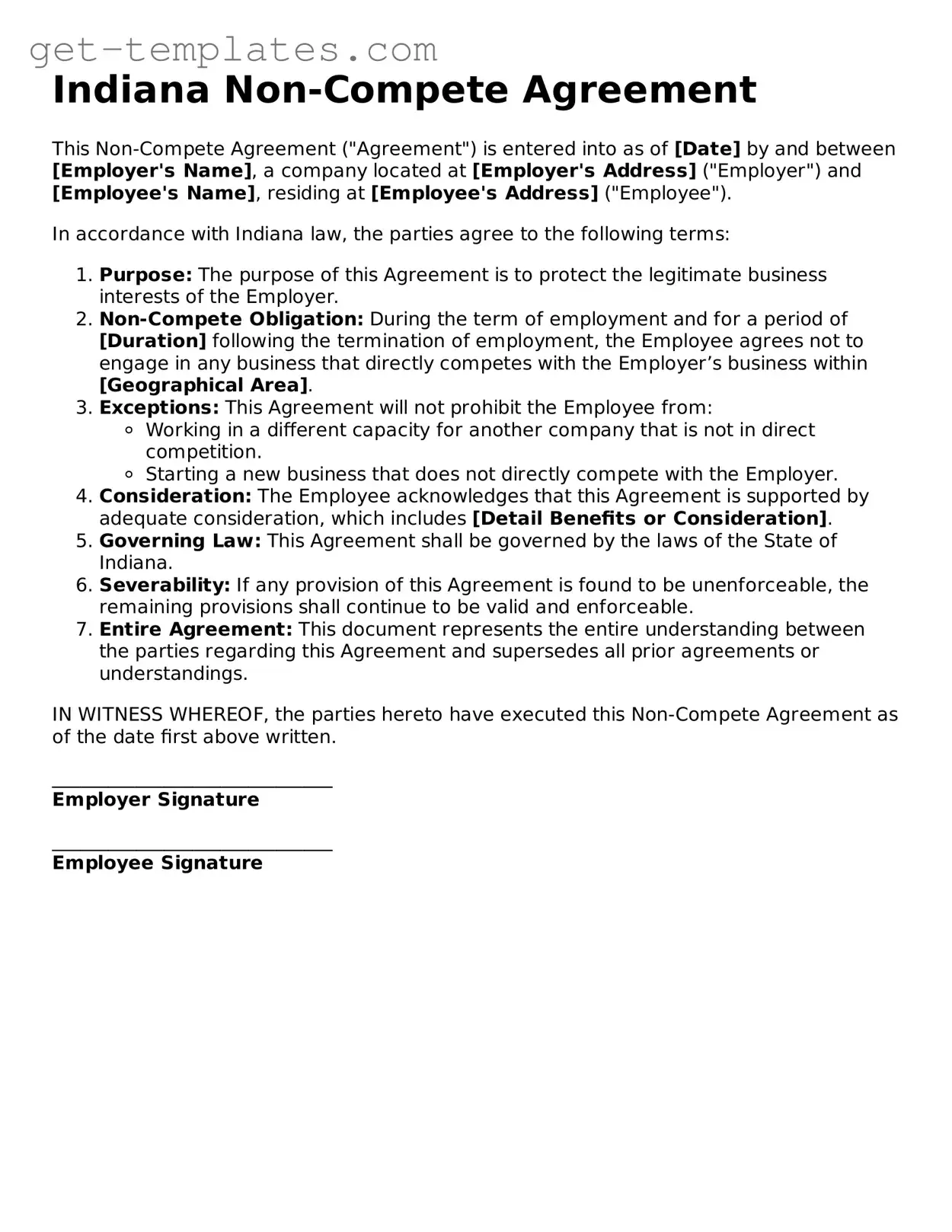Attorney-Approved Non-compete Agreement Document for Indiana
A non-compete agreement is a legal document designed to restrict an individual's ability to work in similar fields or start a competing business after leaving a job. In Indiana, this form outlines the specific terms and conditions under which an employee agrees to limit their professional activities for a certain period. Understanding the implications of this agreement is essential for both employers and employees navigating the employment landscape.
Get Document Online

Attorney-Approved Non-compete Agreement Document for Indiana
Get Document Online
You’re halfway through — finish the form
Finish Non-compete Agreement online — edit, save, download made easy.
Get Document Online
or
⇓ PDF Form
